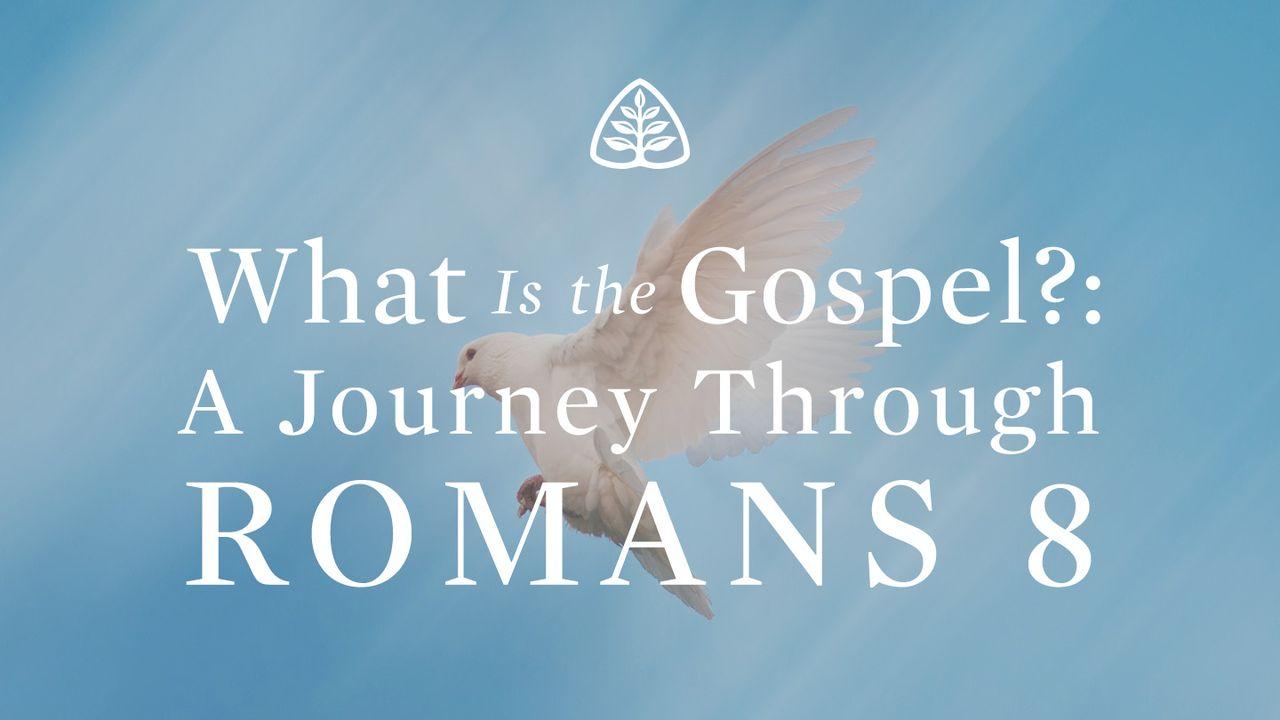What Is the Gospel?: A Journey Through Romans 8Намуна

Sparing Not His Son
Given that all people have suppressed the knowledge of the most holy God and rejected Him as King, the Lord could not simply overlook sin and pardon us; rather, forgiveness requires that our transgression be dealt with fully and finally. Thus, God sent His Son to bear His own wrath for our lawbreaking, and He declares us righteous in Christ, the One who succeeded where Adam failed and achieved a perfect righteousness that is imputed to all who rest only in Jesus for salvation (Rom. 1-5). In redeeming us, God did not only purchase our forgiveness and impute to us a righteous status before His bar of judgment. By His Spirit, through Christ’s ongoing intercession, the Father also empowers us to fulfill His demands, conforming us to the image of His Son. This process of sanctification does not secure our righteousness before God; it follows the declaration that we are righteous in Christ alone, and we will one day be glorified, for the presence and effects of sin will be banished from us and the created order (6:1-8:30).
Lest we have any doubt that the Lord will accomplish all of these things, the Apostle Paul in today’s passage gives us even more reasons for the confidence that God’s people enjoy in regard to our final salvation. We find this assurance in the cross of Christ, for Paul reminds us that the Father did not spare His own Son in order to save us (8:32). The Apostle likely alludes to the Aqedah, or the sacrifice of Isaac, in this verse (see Gen. 22). The Lord had ordered the patriarch to sacrifice his son, but just as Abraham was about to plunge the knife into Isaac, God called for him to stop. Our heavenly Father spared Abraham’s son. He did not spare His own Son. This manifests His love for us, for if He was willing to hand over His Son to death for our sake—to give up the One who is most precious to Him—how can we doubt that He will finish the work He started in us? As Paul writes, “How will he not also with [Christ] graciously give us all things?” (Rom. 8:32).
When God commanded Abraham to offer up Isaac, He stepped in and spared Abraham’s son when the patriarch proved faithful. When the Son of God offered up Himself as the perfect sacrifice to atone for sin, His Father did not spare Him when His Son proved faithful. The God we serve loved His people so much that He took upon Himself, in the humanity of His incarnate Son, the curse we deserved so that we could be His children. This was the ultimate self-sacrifice, and proof that His grace toward His people knows no limits.
CORAM DEO Living before the face of God
God’s willingness to give up His own Son to death demonstrates unambiguously that He is for us. He is on our side, or better yet, we are on His side, and there is nothing that anyone or anything can do that will finally harm us. What looks like our loss and the victory of our enemies over us is only temporary, for the final victory is assuredly ours in Christ. John Calvin comments, “Having [God] as our defender, we need fear no harm.”
Навиштаҳо
About this Plan

All of Scripture points to the good news of Jesus Christ. In Romans 8, the Apostle Paul gives us a rich portrayal of the gospel and explores the implications that Jesus’ life, death, and resurrection have for Christians. This 20-day study takes you verse-by-verse through Romans 8, drawing out truth that we can cling to each day as we navigate this life with the hope of eternity in view.
More
Нақшаҳои марбут ба мавзӯъ

Chosen and Set Apart: Walking in Your God-Given Identity

The Life of Jesus Pt. 5 – Multiplying Leaders

His Name Shall Be Called

Thriving at Work

Following Jesus Through the First Christmas: 25 Days of Advent Truths

Why? | a 3-Day Skate Church Movement Devotional

At Thy Word With Reverend Matthew Watley

Rise and Write: Overcoming 3 Common Obstacles Christian Writers Face

The Power of Thanksgiving
